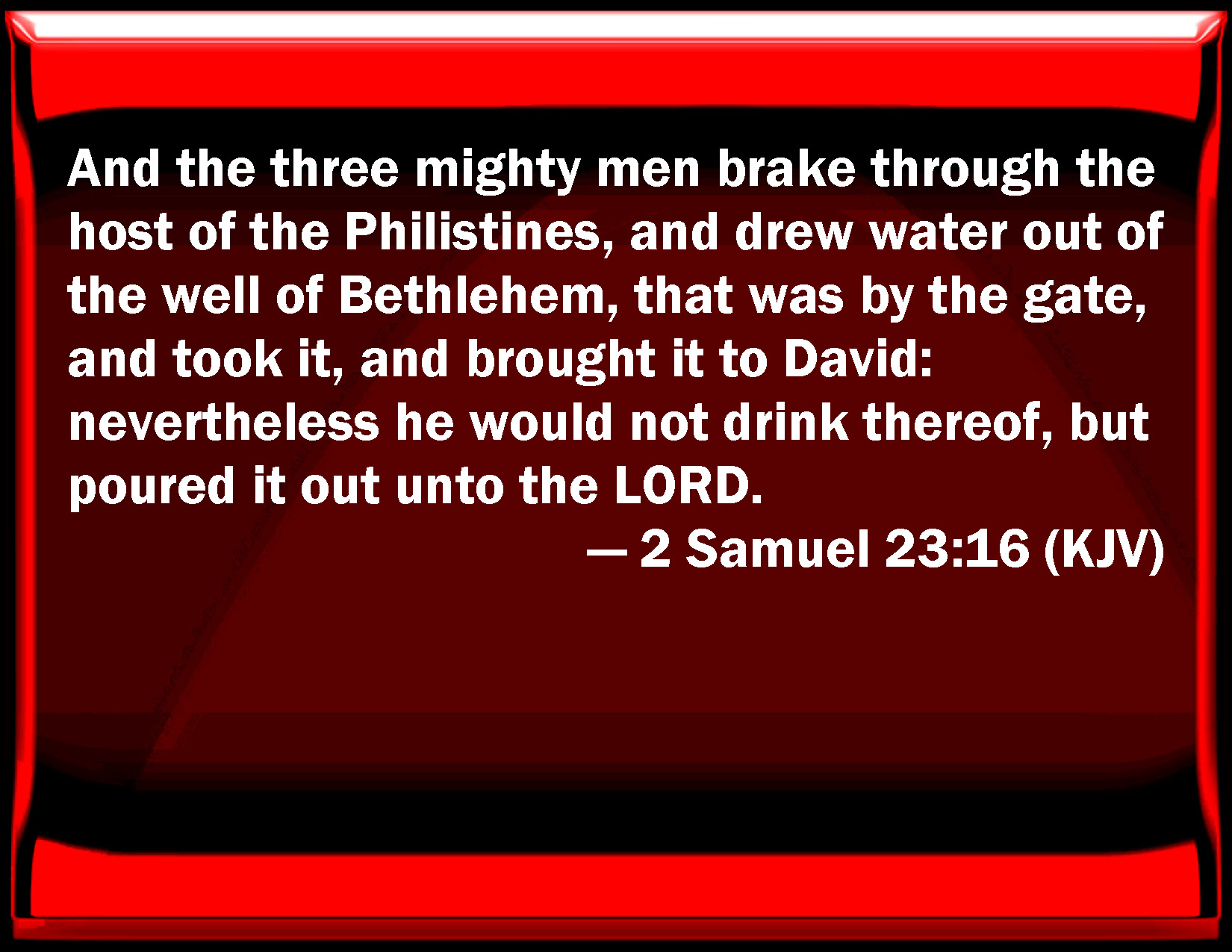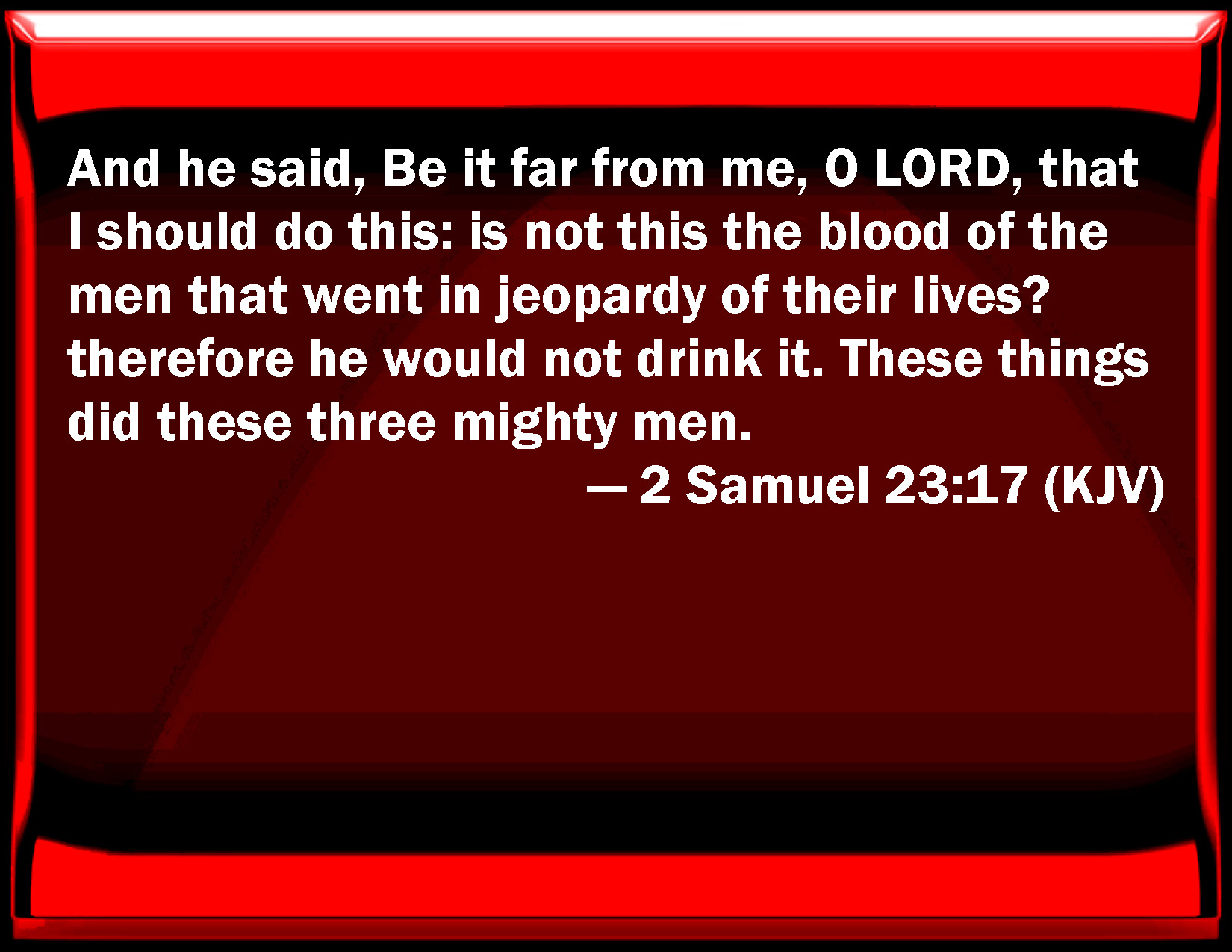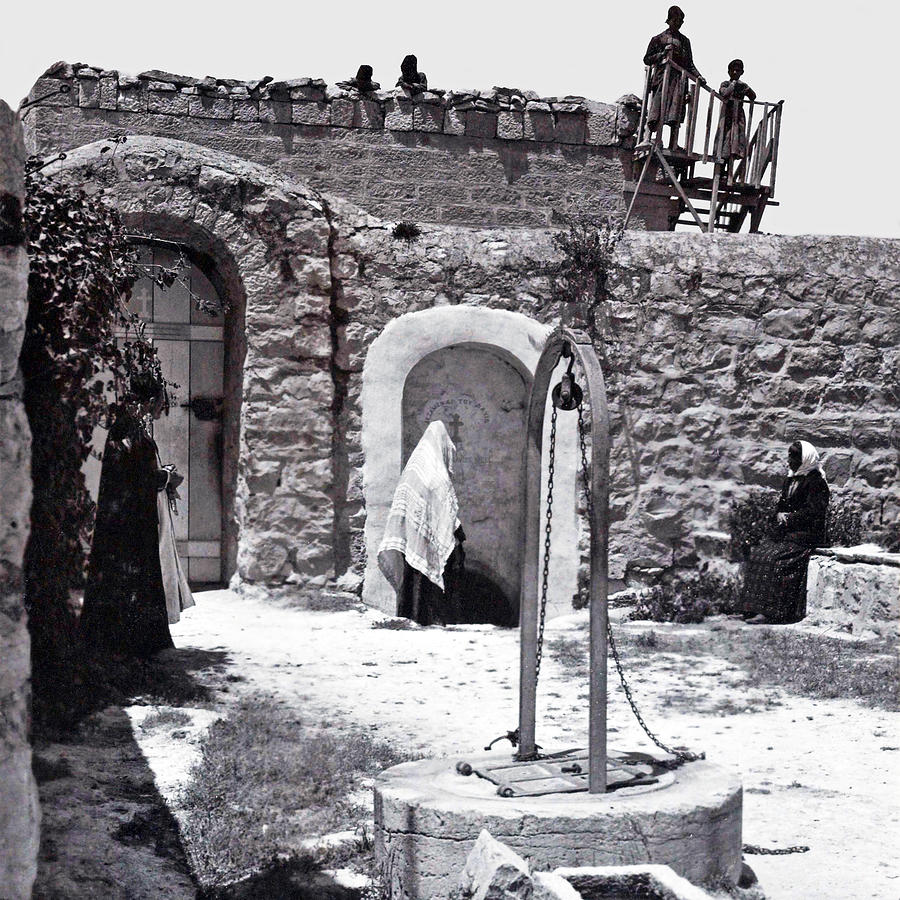
Posted on 03/31/2023 7:11:41 PM PDT by Charles Henrickson
“The Sacrament of the Altar: What Is It, and What Does It Give?”
In the Small Catechism, as we just read, Luther arranges his teaching on the Sacrament of the Altar according to its nature, benefit, power, and right reception. Today, I want to focus especially on the first two sections, the nature and the benefit. And so our theme: “The Sacrament of the Altar: What Is It, and What Does It Give?”
We start with the “What is it?” question: “What is the Sacrament of the Altar? It is the true body and blood of our Lord Jesus Christ under the bread and wine, instituted by Christ Himself for us Christians to eat and to drink.”
Everything we want to say about the Sacrament is based on the words of Christ when he instituted it. So when we say, “It is the true body and blood of Christ,” we are saying nothing more than what Jesus himself says: “This is my body, this is my blood.” We’re not making this up. We’re not coming up with something new or strange. We’re just agreeing with Jesus. We believe what he says. Our Lord will not mislead us. His words are true, and they are powerful. His words can accomplish infinitely more than we can imagine. If Jesus says, “This is my body, this is my blood,” then that’s what it is.
What the Sacrament is, is tied to who Jesus is. You cannot separate the two. Your view of the Sacrament will run with your view of Christ. If Jesus is the eternal Son of God in the flesh, true God and true man in one person, his two natures, divine and human, united in a personal union--if all that is true, and it is, then it should come as no surprise that in the Sacrament we discover the same thing: the union of the heavenly and the earthly, in a sacramental union. What I mean is this: Here in the Sacrament we receive the true body and blood of Christ “in, with, and under” earthly bread and wine.
The Lord’s Supper is not just bread and wine that reminds us of, or represents, Christ’s body and blood. That false teaching came along with a guy named Zwingli in the 16th century. Luther had a meeting with Zwingli to see if they could come to an agreement, but they could not. On the table where they were meeting, Luther wrote the words of Christ, in Latin, “Hoc est corpus meum,” “This is my body.” And he always came back to those words, “This is my body,” not “This represents my body.” Later on, there came Calvin, who held a more sophisticated view than Zwingli, but still Calvin did not confess that what you are receiving in your mouth is the true body and blood of Christ. Unfortunately, there are many non-sacramental churches here in our community that teach the same. Or, like the non-denoms, they just try to avoid the topic altogether. But here in the Lutheran church, we gladly believe, teach, and confess that the Lord’s Supper is--is!--Christ’s true body and blood, along with the bread and wine.
Christ Jesus is God and man in one person. So, likewise, the Lord’s Supper is Christ’s body and blood with the bread and wine in one sacrament. St. Paul writes to the Corinthians and asks the rhetorical question: “The cup of blessing that we bless, is it not a participation in the blood of Christ?” The answer expected: “Yes, yes of course it is!” Again he asks: “The bread that we break, is it not a participation in the body of Christ?” Again the answer: “Yes, yes of course it is!” So there is this Holy Communion of the bread and wine with the body and blood, all in one sacrament we receive together.
Who Jesus is and what he came to do--the person and work of Christ--all of that is packed into this sacrament. What he came to do—that’s why he says, “body and blood.” It is the body that Jesus gave into death. It is the blood that he shed on the cross. “This is my body, given for you. This is my blood, shed for you.” Jesus institutes this sacrament “on the night when he was betrayed.” On that night, the sinless Lamb of God would be betrayed into the hands of lawless men, in order to rescue us poor sinners from eternal death and damnation. All that Christ won for us by his suffering and death on the cross, where he bore the burden of our sins as the perfect sacrifice--all this is what we receive when Jesus gives us his body and his blood. “Without the shedding of blood there is no forgiveness of sins.” But with the shedding of blood, when it is Christ’s holy precious blood, there is full forgiveness for all of your sins. That is what you receive in the Sacrament of the Altar.
When you receive the true body and blood of Christ, you receive everything you could possibly need. It is the greatest gift you can get. Do you want Christ? Then eagerly desire and gladly receive his blessed Sacrament. You would gladly run a thousand miles to get what he gives you here. You could search the whole earth over, and you will not find a greater treasure. What you receive at this altar, what Jesus gives you in his very body and blood--for it, you would gladly trade all the gold and jewels on the planet. All the wealth of this world cannot equal the gift our Lord gives us in this holy meal.
And that leads us to our second question: “What is the benefit of this eating and drinking? These words, ‘Given and shed for you for the forgiveness of sins,’ show us that in the Sacrament forgiveness of sins, life, and salvation are given us through these words. For where there is forgiveness of sins, there is also life and salvation.”
This is the “What does it give?” question. What does it offer? What good is it to partake of the Lord’s Supper? Certainly, as meals go, the Lord’s Supper does not offer much--a piece of unleavened bread, a small drink of wine. That’s not much of a meal. This is not a fancy feast. If you’re looking for a big meal, this is no big deal. You’d do better going out for brunch on Sunday morning than going to the Lord’s Table. And some people do just that. If your god is your belly, there are better altars at which to worship.
But we find the benefit in the words of Jesus, “Given and shed for you for the forgiveness of sins.” “The forgiveness of sins.” That’s it. That’s why Jesus gave his body and shed his blood on the cross. He did it “for you for the forgiveness of sins.” And so now when Christ gives you his body and blood in this sacrament, he is giving you the great benefit that comes with it, which is, “the forgiveness of sins.”
Jesus knows what our greatest need is. Our sins are our biggest problem. They stand in the way between us and God. Sin is everything I do to assert myself as my own god, making my own decisions about what is right and wrong. That is sin, in its essence. And it shows up in a thousand different ways, in what we say, do, and think.
Do you recognize that you are that sinner, who does all those sins? Then this Supper is for you. It meets your greatest need, forgiveness. The only way for your sins not to be held against you and sentence you to eternal death is through God’s forgiveness. And that does not come cheap. It took God’s own Son, Jesus Christ, giving his body and shedding his blood for you on the cross. And that is what Christ gives you now in the Sacrament: his body and blood, “given and shed for you for the forgiveness of sins.”
Are you a sinner? Imagine a big banner hanging over this altar: “For Sinners Only.” Do you qualify? Then this is just the spot for you. Here you will receive forgiveness for your sins, and, along with that, everything else that follows as a result.
“For where there is forgiveness of sins, there is also life and salvation.” Sins lead to death and damnation. Forgiveness leads to life and salvation. If sins are no longer held against you, then death and damnation are taken care of also. So if the chief benefit of the Sacrament is forgiveness, then you will receive what goes with it, namely, life in place of death, salvation instead of damnation.
The gifts that Christ won for us by his death and resurrection--these gifts are delivered to us and taken into our mortal bodies when we partake of the Lord’s Supper. This is why the Sacrament is called “the medicine of immortality.” It is the true elixir of life that we take into our dying bodies. It is a pledge to us of the resurrection of the body and the everlasting life to come. To receive Christ’s body and blood into our bodies is to receive forgiveness, life, and eternal salvation.
My friends, I cannot tell you any place you could go where you would receive anything better than what you receive right here in the Sacrament of the Altar. You could travel the world around, to Paris or Rome or New York, you could go to the finest five-star restaurant and run up a $5,000 tab, and still you would find no greater meal than what you get right here for free. It is the Lord’s Supper--the meal he has for you.
The Sacrament of the Altar: What is it, and what does it give? It is the true body and blood of Christ, given and shed for you for the forgiveness of sins. And, dear friends, what Christ gives you in this sacrament opens up everything else that comes with it!
What is the benefit of this eating and drinking? These words, “Given and shed for you for the forgiveness of sins,” show us that in the Sacrament forgiveness of sins, life, and salvation are given us through these words. For where there is forgiveness of sins, there is also life and salvation.
Ping.
Isolationist exegesis, contrary to how the NT church manifestly understood the gospels (which does not teach the LS as being spiritual food, or teach transubstantiation, nor make it the focus of devotion, and when it does actually describe it then it is to show the Lord's death by manifesting the union that the body of Christ has, as the "one loaf," by sharing food in a communal meal with others who were purchased with His sinless shed blood, thus effectually remembering is via its effects.
See here and more, by God's grace:
The Lord's Supper: metaphorical commemoration or the consumption of the metaphysical "real" body and blood of the Lord Jesus?
(Note: allow scripts for pop up Bible verses
4. 1Cor. 10,11 |
5. The Lord's Supper in the record and descriptions of the New Testament church |
6. Purely literal versus the contrived Catholic interpretation |
11. Endocannibalism |
12. Conclusion |
‘Do this in remberance of Me’ JESUS.
Always comes to me .
Scripture is plain so as a 6 yrs old
can Understand it and a 60 yrs old
Will still plumb it’s Depths.
Share it’s simplicity
Rejoice in it’s Magnificents !



This is the well where David's men's blood was sourced from....
sarc/
This is one of my favorite sites because it summarizes the whole issue and resolves it with Scripture.
https://www.gotquestions.org/holy-communion.html
It is helpful as a summary but hardly deals with all the counter claims and arguments relative to documented RC doctrine, and foundational and contextual aspects sufficiently which refute them, by the grace of God.
So when we say, “It is the blood of the three mighty men” we are saying nothing more than what David himself says: “ is not this the blood of the men that went in jeopardy of their lives.” We’re not making this up. We’re not coming up with something new or strange. We’re just agreeing with David. We believe what he says. David will not mislead us. His words are true, and they are powerful. The cup is not just water that reminds us of, or represents, their blood. That false teaching came along with a guy named Zwingli in the 16th century.
So (rather than the Biblical metaphorical meaning, in which the church itself is one loaf) take such language plainly literally. Thus "Take, eat: this is My body... Drink....this is my blood" means the apostles were looking at actual incarnated bloody flesh, and a cup of actual red blood, just as manifestly physical as Christ was when He sweated blood and was crucified, and a spear thrust into Him and out came water. And who said "Behold my hands and my feet, that it is I myself: handle me, and see; for a spirit hath not flesh and bones, as ye see me have" (Luke 24:39); And not some inanimate objects that do not look, behave, smell, taste to be the body and blood of Christ, but scientifically test to be just what they appear to be, despite it being claimed that they no longer exist as such.
Thus John emphasizes the manifestly physical incarnated Christ, in contrast to one whose body was not according to what He appeared to be:
Then saith he to Thomas, Reach hither thy finger, and behold my hands; and reach hither thy hand, and thrust it into my side: and be not faithless, but believing. (John 20:27)
That which was from the beginning, which we have heard, which we have seen with our eyes, which we have looked upon, and our hands have handled, of the Word of life; (For the life was manifested, and we have seen it, and bear witness, and shew unto you that eternal life, which was with the Father, and was manifested unto us;) (1 John 1:1-2)
This is he that came by water and blood, even Jesus Christ; not by water only, but by water and blood. And it is the Spirit that beareth witness, because the Spirit is truth. (1 John 5:6)
Yeah. No Catholic is going to read all that. I have not met any Catholic having any academic interest in hermeneutics. A close 2nd are Episcopalians, who write doctrinal papers that are meant to hurt your head.
The only way to have a positive outcome that moves them to objectivity, is by personal relationship. You are dealing with a cult, much like LDS and JWs; all of them are so terrified of being wrong, they can’t see truth in front of their faces.
Disclaimer: Opinions posted on Free Republic are those of the individual posters and do not necessarily represent the opinion of Free Republic or its management. All materials posted herein are protected by copyright law and the exemption for fair use of copyrighted works.